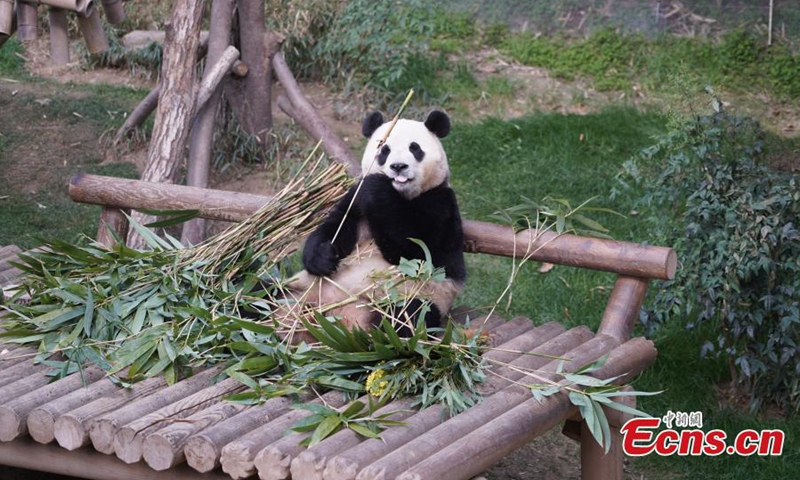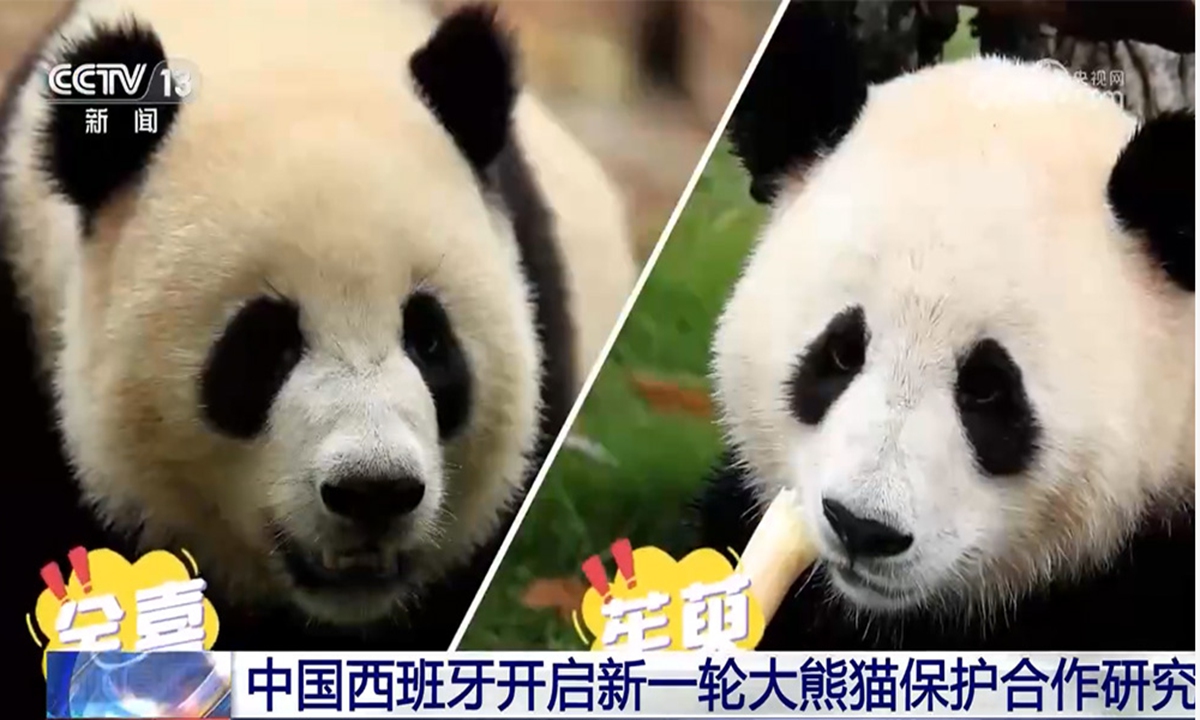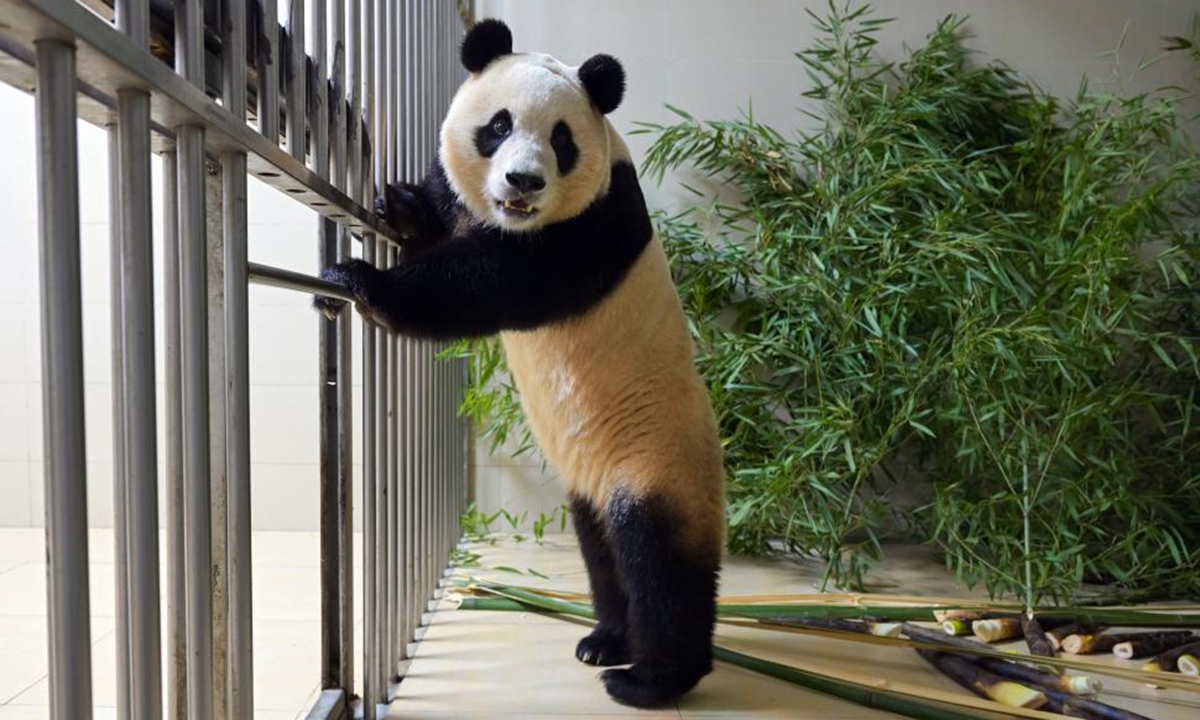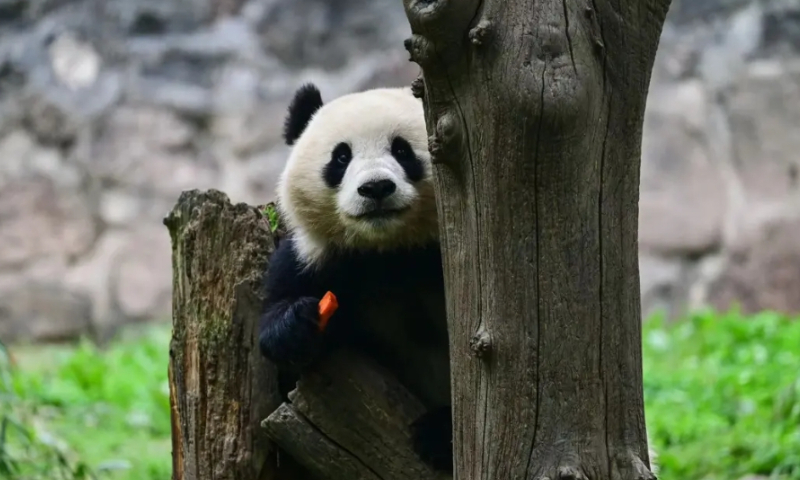
Fu Bao, the first giant panda born in South Korea in 2020, eats bamboo at Everland theme park in Yongin, South Korea, March 3, 2024. Fu Bao made her last appearance at the park on Sunday ahead of her scheduled return in April.(Photo: China News Service)
Fu Bao, the giant panda who became massively popular in South Korea, has attracted wide attention among South Korean netizens, with some calling on the Chinese side to return the panda cub after unverified photos circulating on social media platforms showed some dark spots around her neck.
Fu Bao is the first giant panda born in South Korea and returned to China in early April this year. She is the first cub of Ai Bao and Le Bao, who were transferred to South Korea from China in 2016 on a 15-year lease in accordance with a cooperation agreement signed between two countries.
Many South Korean netizens expressed their strong dissatisfaction and concern when photos and videos of Fu Bao were leaked and circulated across social media platforms, with some even suggested the spots on her neck might be from being chained, according to reports. Local citizens also started petitions and created a "Save Fu Bao" thread on social media platform X.
China's national giant panda conservation and research center said on May 28 that Fu Bao recently suffered hair loss around her neck. Staff have taken relevant samples for testing, with no pathogenic bacteria found, and there are no allergies, scabs, thickening of the skin layer or other abnormalities in the skin area. Zoologists will continue to monitor her situation.
The center said on May 25 that no outside parties have entered the breeding park to pat, feed or take photos of Fu Bao, and the latest photos of the panda were taken by a photographer without permission and that the base had reported the case to the police.
The center has set up a special column on its official WeChat account for clarification of online rumors. The account also released videos of Fu Bao to the public capturing her daily moment, as it posted a video on Monday showing the giant panda leaned against a wall and ate bamboo.
When meeting with the Chinese Ambassador in South Korea Xing Haiming on Friday, Daegu Mayor of South Korea Hong Joon-pyo expressed his hope that China would give a pair of pandas to the Daegu Grand Park.
There is no such thing as "returning" pandas, Zhao Songsheng, manager of YueWeiLai, a Chengdu-based NGO dedicated to protecting giant pandas, told the Global Times on Monday. China terminated the gratuitous gift of pandas to foreign countries and instead sent pandas to the world on short-term tours abroad in the 1980s to better protect the endangered animal, according to media reports.
China has been sending pandas abroad in the form of scientific cooperation since 1994, and these pandas and their offspring belong to China.
When "people from South Korea demand China to return Fu Bao" became a trending topic on China's social media platform Sina Weibo, many Chinese citizens commented that Fu Bao is a national treasure and belongs to China. There is no reason to doubt the love of a "mother" for her "children."
Zhao said that netizens from South Korea, regardless of the city, are concerned about the situation of Fu Bao, which is definitely a good thing and shows that they love giant panda. He added that this is a misunderstanding based on love, that the two countries have different approaches to caring for pandas, and officials should do more work to help global fans, especially the youths, learn knowledge of the panda.



